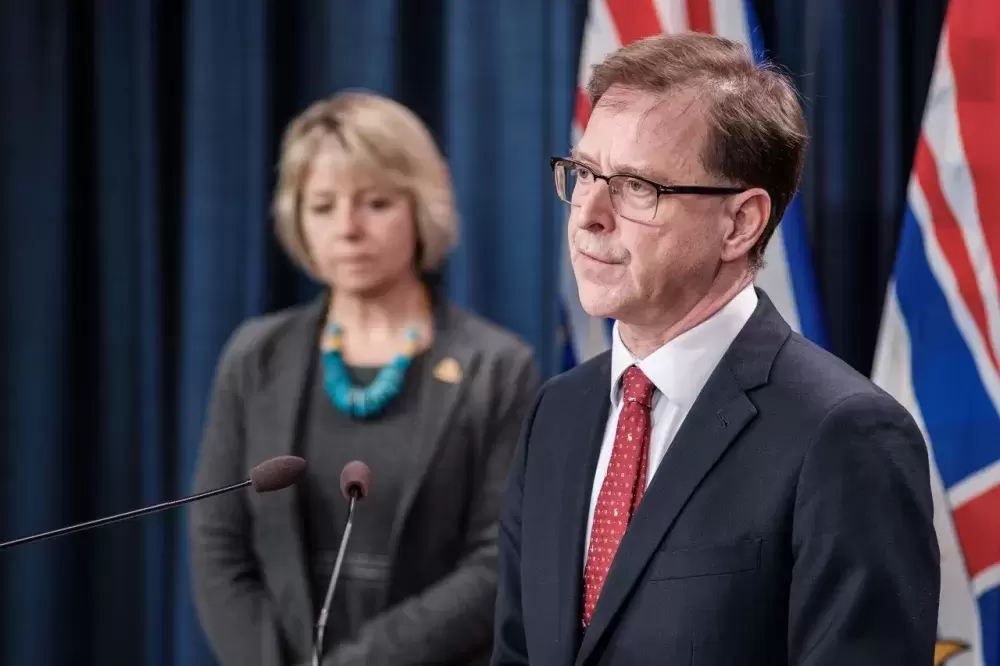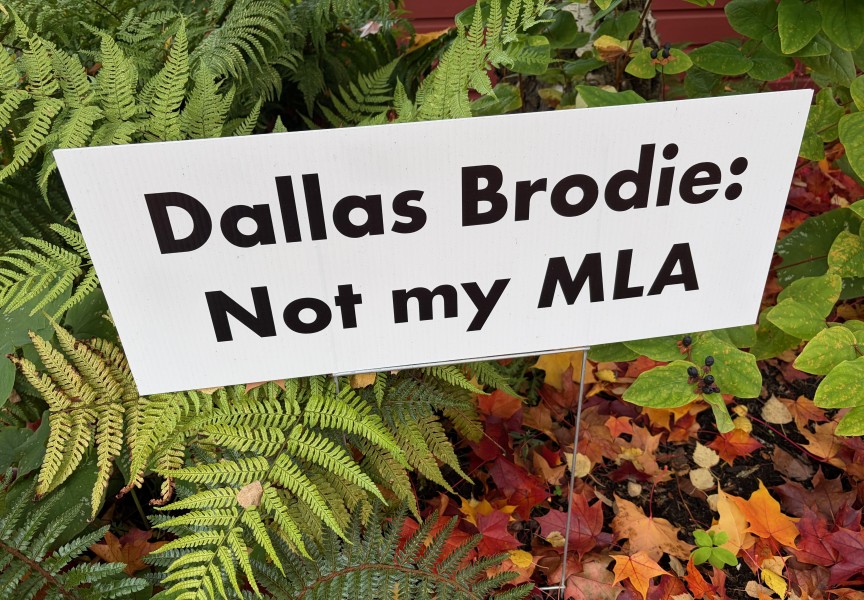The number of new coronavirus cases in British Columbia remains stable, indicating to health authorities that the province’s models for spread are on track and that social distancing measures are working.
On Friday Provincial Health Officer Dr. Bonny Henry announced 53 new confirmed cases of COVID-19 over the previous 24-hour period, a daily total that has remained relatively consistent over the last week and a half. B.C. has not reported over 70 new cases of the respiratory disease since March 24.
These new cases bring the province’s total to 1,174, including 74 confirmed cases on Vancouver Island – but the number of COVID-19 recoveries continues to grow, now comprising 641 of the total cases tracked in B.C. On Friday the province also announced four new deaths tied to COVID-19, three of which are part of outbreaks at the Lynn Valley and Haro Park nursing homes in Vancouver. B.C. has reported 35 deaths among patients with COVID-19.
Weeks into a provincial state of emergency banning gatherings of 50 or more people and urging individuals to stay home whenever possible, Henry has stressed that social distancing measures to contain the spread of the virus will continue for the coming weeks.
“The risk remains high for everyone here in British Columbia,” she said. “We have to have united focus for the next while…We need to keep our firewall strong.”
The most recent numbers align B.C. with models presented a week ago, showing that the province is close to being in line with infection rates experienced in South Korea. With a population of 51 million, the Asian country has reported over 10,000 coronavirus infections and 174 deaths, showing rates significantly lower than what has struck Italy and Spain.
The province’s models also show a scenario that could be as bad or better than the outbreak that first hit China’s Hubei province at the end of 2019. This enables provincial health authorities to prepare for a situation where the rise in critical COVID-19 cases fills hospital beds, with 80 per cent of these patients requiring ventilators to stay alive. Currently 4,399 acute care beds are empty in B.C., an availability made possible by the province deferring scheduled surgeries, said Health Minister Adrian Dix. To date 46 per cent of B.C.’s critical care beds are available in case they are needed for coronavirus patients.
On Friday the province reported that 146 of those with COVID-19 are hospitalized, a slight decrease from the day before.
“While we are absolutely determined to have the best results, we are preparing for the worst possible scenarios,” said Dix. “Using the likely scenario of below or at a Hubei epidemic level, using inpatient medical and surgical beds, capacity looks good focussed on using all sites.”
While the number of new cases continue to ramp up in other parts of Canada and the United States, B.C.’s numbers indicate that the practice of social distancing could be working, said Henry. After a 24-per-cent rise in new cases earlier in March, transmission has slowed to 12 per cent.
“If all of us have done our part, and I’m starting to see some glimmers of hope, our trajectory has leveled off a bit,” said Henry. “We need to see that continue, and, of course, ideally we’d like to see it going down. We probably won’t see it going down for a while yet, but this trajectory allows us to maintain our health system.”
The U.S. border needs to remain closed to non-essential travel, and those who come from outside the country must isolate for 14 days immediately, otherwise B.C.’s efforts to control the virus could be undermined, said Dix.
“We have to double down on activities and we cannot allow new circumstances to get in the way of what Dr. Henry and the whole team of people in every corner of B.C. - and the 5 million participants of that team of people who live in B.C. - are doing right now,” he said. “We’re continuing to work with the federal government to press them to ensure that when people come to British Columbia, come to Canada from outside the country, that the Quarantine Act measures are put in place properly.”







